What are Anxiety and Depression? Books About Depression and Anxiety for Young Adults
Anxiety and depression difference: The fact that one term denotes a single sickness while the other denotes a collection of ailments is a significant distinction between anxiety and depression.
In reality, depression is one illness. There are numerous distinct symptoms (see below). And different people may experience it very differently. However, the term “depression” only refers to one illness.
The word “anxiety” can indicate a number of different things. We all experience anxiety occasionally, and the word “anxiety” can be used to describe that feeling simply. However, when we use the word anxiety in a medical context, it actually refers to anxiety disorder.
Some less frequent conditions are included under anxiety. These include panic disorders and phobias. However, generalized anxiety disorder is the most prevalent (GAD). In the US, a generalized anxiety disorder may affect four to five out of every 100 persons. In this post, we’ll concentrate on generalized anxiety.
What is Anxiety Disorder?
According to The National Institute on Mental Health, periodic anxiety is a standard component of life. When faced with a challenge at work, before a test, or before making a crucial decision, you could experience anxiety. However, anxiety disorders involve more than just passing apprehension or terror.
Anxiety and depression difference: It’s critical to get anxiety treatment as soon as you can since, for someone with an anxiety condition, the anxiety does not go away and can actually worsen over time. The symptoms might affect daily tasks like work performance, academic progress, and interpersonal connections. Generalized anxiety disorder, panic disorder, and various phobia-related disorders are only a few of the several types of anxiety disorders.
Skip To:
- Difference Between Anxiety and Depression – Books About Depression and Anxiety for Young Adults
- Depression Fact Sheet
- Depression and Anxiety Statistics
- 10 Books on Depression and Anxiety
- Best Books for Anxiety and Depression
- Books for Anxiety and Depression
- Books to Help With Anxiety and Depression
- Best Self Help Books for Anxiety and Depression
- We Level Up Dual Diagnosis Treatment
Learn More:
- Do Crystals For Depression Work?
- Depression and ADHD: What’s the Link?
- Autism and Depression Connection, Diagnosis & Treatment
- Signs of Depression in Men, Causes, & What to Know
- Rehab for Depression & Anxiety Treatment
- What is the Best SSRI for Anxiety?
- Social Anxiety Disorder
- Grounding Techniques for Anxiety Attacks
- Mental Health Poems that are Powerful and Healing
- Short-Term Disability Mental Health
Anxiety and depression difference: People with a generalized Anxiety disorder (GAD) display excessive Anxiety or worry, most days for at least 6 months, about many things such as personal health, work, social interactions, and everyday routine life circumstances. Fear and Anxiety can cause significant problems in areas of their life, such as social interactions, school, and work.
What is Depression?
Depression (also known as Major Depressive Illness or Clinical Depression) is a common but significant mood disorder, according to the National Institute of Mental Health. It produces severe symptoms that interfere with your ability to function on a daily basis, including sleeping, eating, and working. The signs of depression must last for at least two weeks before a diagnosis may be made.
Depression treatment is required when depressive symptoms are chronic and do not go away since some types of depression are slightly different or may arise in unusual situations.
Types of Depression
- Persistent depressive disorder (also called dysthymia): is a depressed mood that lasts for at least two years. A person diagnosed with persistent depressive disorder may have episodes of major Depression along with periods of less severe symptoms, but symptoms must last for two years to be considered a persistent depressive disorder.
- Psychotic Depression: occurs when a person has severe depression plus some form of psychosis, such as having disturbing false fixed beliefs (delusions) or hearing or seeing upsetting things that others cannot hear or see (hallucinations). The psychotic symptoms typically have a depressive “theme,” such as delusions of guilt, poverty, or illness.
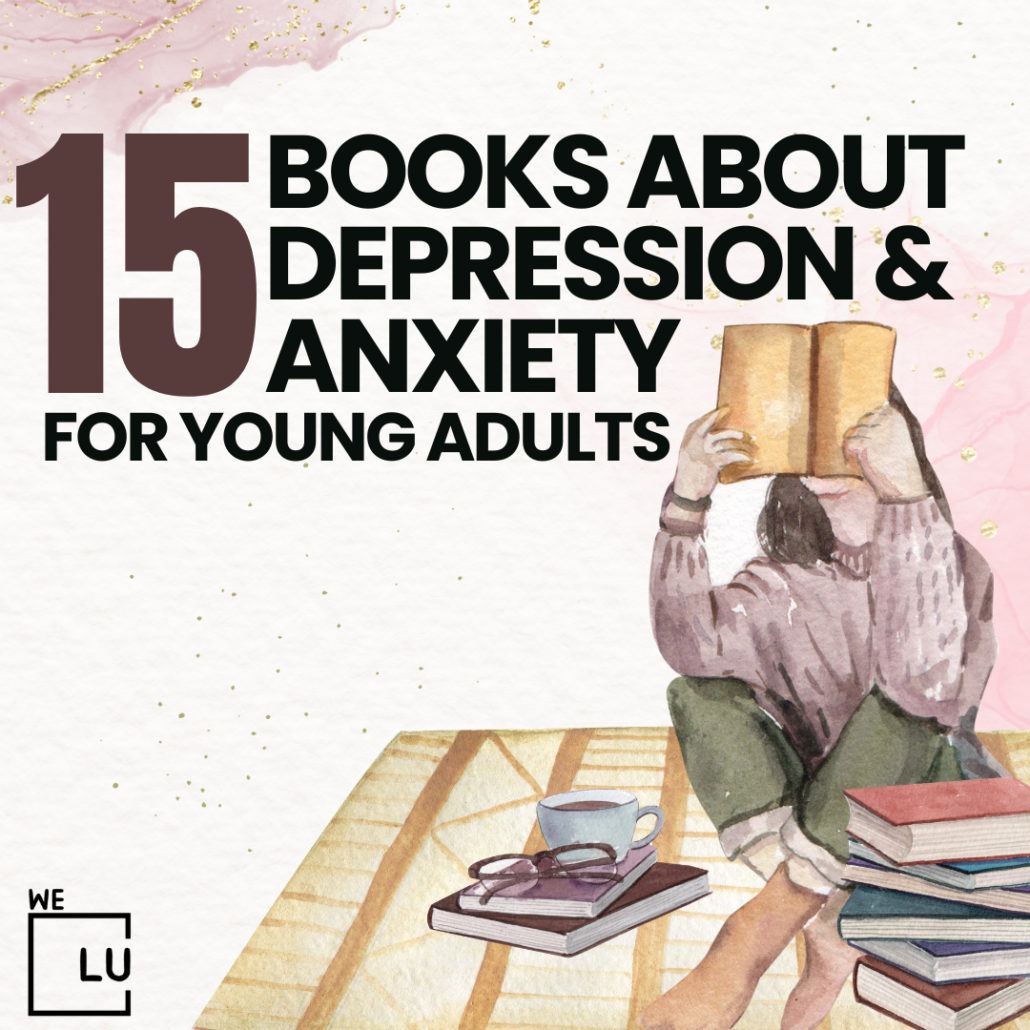
- Bipolar disorder: is different from Depression, but it is included in this list because someone with bipolar disorder experiences episodes of extremely low moods that meet the criteria for major Depression (called “Bipolar Depression”). But a person with bipolar disorder also experiences extreme high – euphoric or irritable – moods called “mania” or a less severe form called “hypomania.”
- Postpartum Depression: is much more serious than the “baby blues” (relatively mild depressive and anxiety symptoms that typically clear within two weeks after delivery) that many women experience after giving birth. Women with postpartum Depression experience full-blown major Depression during pregnancy or after delivery (postpartum depression). The feelings of extreme sadness, anxiety, and exhaustion that accompany postpartum depression may make it difficult for these new mothers to complete daily care activities for themselves and/or their babies.
- Seasonal affective disorder: is characterized by the onset of Depression during the winter months, when there is less natural sunlight. This Depression generally lifts during spring and summer. Winter Depression, typically accompanied by social withdrawal, increased sleep, and weight gain, predictably returns every year in seasonal affective disorder.
- SAD Seasonal Depression (Depressed SAD): A form of depression known as seasonal affective disorder (SAD) is triggered by the changing of the seasons; it starts and ends about at the same periods each year. If you have SAD like the majority of people do, your symptoms begin in the fall and last through the winter, draining your energy and making you cranky. Typically, these symptoms go away in the spring and summer. SAD less frequently results in depression in the spring or early summer and clears up in the fall or winter.
SAD treatment options include medications, psychotherapy, and light therapy (phototherapy).
Get Help. Get Better. Get Your Life Back.
Searching for Accredited Dual Diagnosis Mental Health Centers Near You?
Even if therapy failed previously, or are in the middle of a difficult crisis, we stand ready to support you. Our trusted behavioral health specialists will not give up on you. When you feel ready or just want someone to speak to about counseling alternatives to change your life call us. Even if we cannot assist you, we will lead you to wherever you can get support. There is no obligation. Call our hotline today.
FREE 24/7 Dual Diagnosis Mental Health Services HotlineDepression Fact Sheet
Depression Overview
Depression is a group of illnesses like depression or bipolar disorder that are connected to mood elevation or depression
Types of Depression
- Clinical Depression: A mental health disorder characterized by persistently depressed mood or loss of interest in activities, causing significant impairment in daily life.
- Persistent depressive disorder: A mild but long-term form of depression.
- Bipolar disorder: A disorder associated with episodes of mood swings ranging from depressive lows to manic highs.
- Bipolar II disorder: A type of bipolar disorder characterized by depressive and hypomanic episodes.
- Postpartum depression: Depression that occurs after childbirth.
Depression Treatments
- Support group: A place where those pursuing the same disease or objective, such as weight loss or depression, can receive counseling and exchange experiences.
- Cognitive behavioral therapy: A conversation treatment that aimed to change the negative attitudes, actions, and feelings connected to psychiatric discomfort.
- Counseling psychology: A subfield of psychology that handles issues with the self that are connected to work, school, family, and social life.
- Anger management: To reduce destructive emotional outbursts, practice mindfulness, coping skills, and trigger avoidance.
- Psychoeducation: Mental health education that also helps individuals feel supported, validated, and empowered
- Family therapy: psychological counseling that improves family communication and conflict resolution.
Depression and Anxiety Statistics
It’s critical to understand the distinction between anxiety and depression. Anxiety, in its most basic form, is an excessive feeling of worry, whereas depression, in its most basic form, is an excessive feeling of worthlessness and hopelessness. It is conceivable for someone to experience depression and anxiety simultaneously.
6.8 million
GAD affects 6.8 million adults or 3.1% of the U.S. population, yet only 43.2% are receiving treatment.
Source: National Institute on Mental Health
19 million
19 million adults experience specific phobias, making it the most common anxiety disorder in America.
Source: ADAA, 2020
17.3 million
Major depressive disorder affects approximately 17.3 million American adults or about 7.1% of the U.S. population aged 18 and older.
Source: National Institute of Mental Health
15 Books on Depression and Anxiety
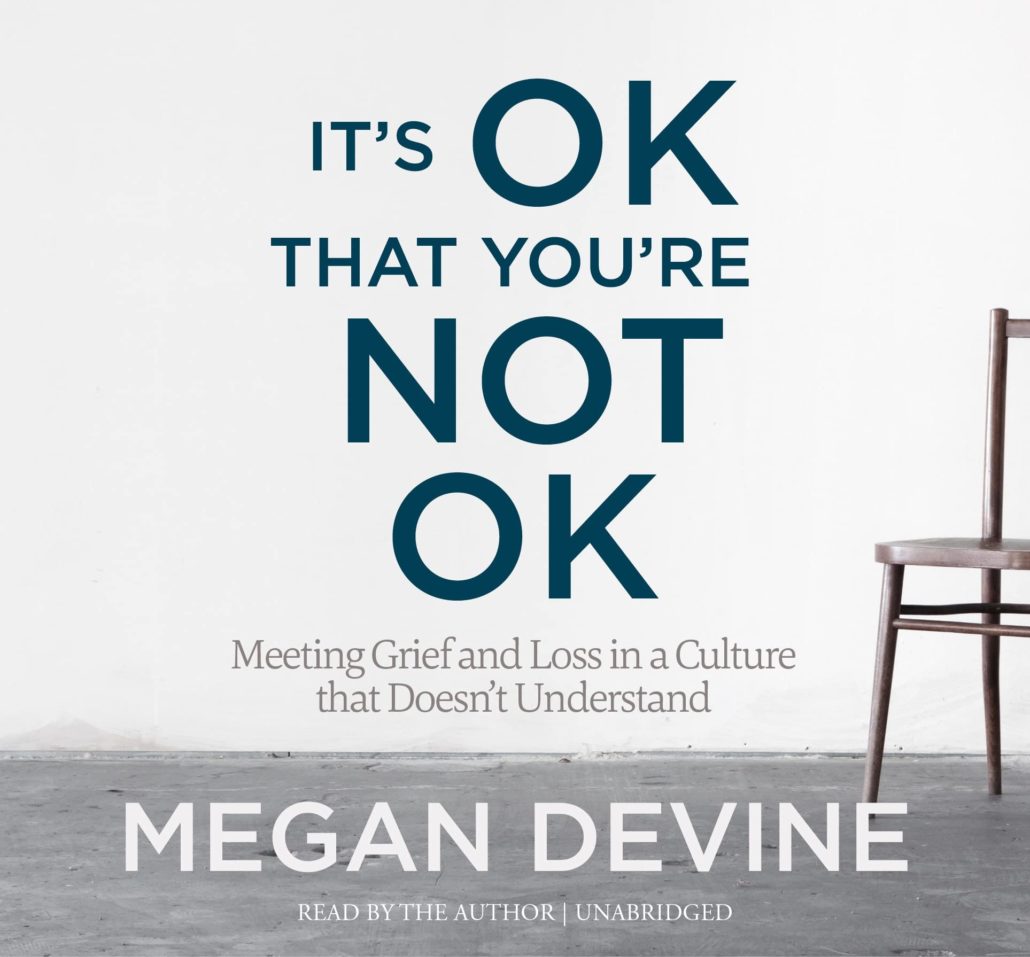
Best Books for Anxiety and Depression
It takes more than just feeling down or having a terrible day to be depressed. It is a mood condition that has an impact on your thoughts, behaviors, and emotions. It can take many different forms and have various effects on different people.
Continue reading to find out more about depression and its effects on people. Additionally, you’ll learn which therapies and way of life modifications aid symptoms and how more people might get the support they require.
Fortunately, there are a lot of materials available, such as the following books, each of which offers a distinctive viewpoint.
Books for Anxiety and Depression
1. It’s OK That You’re Not OK: Meeting Grief and Loss in a Culture That Doesn’t Understand
“It’s OK That You’re Not OK” details Megan Devine’s method for coping with traumatic loss or other life-changing occurrences. Megan Devine wrote the book as a reaction to how society treats sadness as something that needs to be repaired and eliminated from our lives as quickly as possible. She observes, “Grief is just love in its wildest and most excruciating form… It is an appropriate and normal reaction to loss.
Megan rejects the idea of leading a “normal” existence because she has dealt with sorrow as a therapist and watched her partner’s accidental drowning. Instead, she opts for a compromise of incorporating mourning into building a healthy life.
This book, which has been published in the New York Times, Reader’s Digest, HuffPost, and NPR’s Radio Times, offers sage counsel, tales, research, life recommendations, and inventive, mindfulness-based techniques for coping with and living with loss.
2. Unstuck: Your Guide to the Seven-Stage Journey Out of Depression
Antidepressants and psychotherapy don’t always help those with mental health problems, though. James Gordon presents a seven-stage method that can be effective in his book “Unstuck: Your Guide to the Seven-Stage Journey Out of Depression” based on his 40 years of pioneering experience in psychiatry.
Gordon demonstrates to readers that there are other ways to deal with depression using a combination of dietary supplements, food, movement, exercise, dance, Chinese medicine, meditation, psychotherapy, guided imagery, and spiritual practice.
3. Depression, Anxiety, and Other Things We Don’t Want to Talk About
Ryan Casey Waller, a pastor, and psychotherapist is of the opinion that we are not designed to control the mental illnesses we battle. He argues in his book “Depression, Anxiety, and Other Things We Don’t Want to Talk About” those mental health problems are not a sign of spiritual weakness or a lack of faith and that the struggle doesn’t have to be as isolating and demoralizing as it is for so many people.
Waller invites us to discuss mental health without embarrassment and learn why self-awareness is crucial by fusing clinical insight with practical theology, deep empathy, and clinical insight. He urges us to look into the connections between psychology, biology, and spirituality and learn various healing modalities.
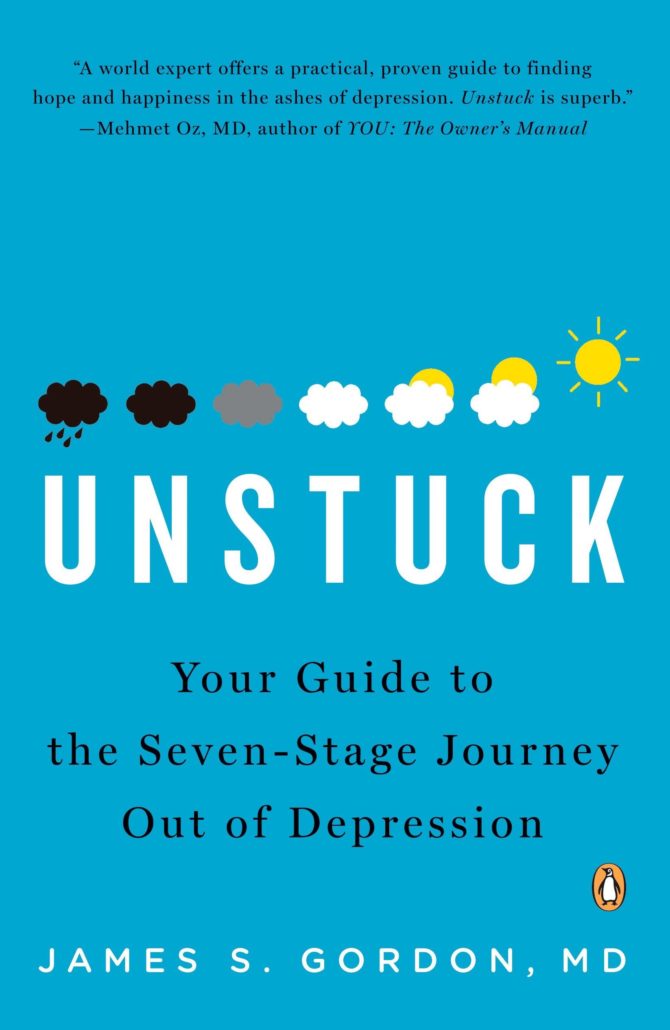
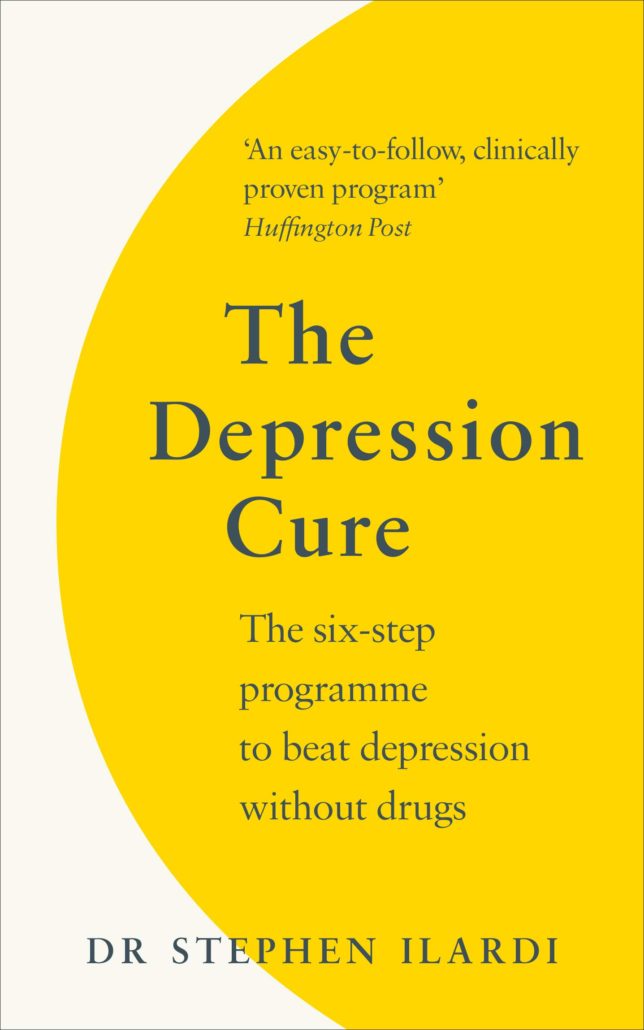
4. The Depression Cure: The 6-Step Program to Beat Depression Without Drugs
The rise in depression rates in our contemporary, fast-paced society is not a coincidence.
Stephen Ilardi, Ph.D., points out in “The Depression Cure” that our bodies and minds were not created to function well with bad eating and sleeping patterns as well as excessive work hours.
He leads us back to the fundamentals by citing examples of depression treatment methods that were influenced by groups like the Kaluli in Papua New Guinea who are still devoid of contemporary technologies.
Ilardi studies mental health and depression as an associate professor of clinical psychology at the University of Kansas. Based on years of clinical study, his program, Therapeutic Lifestyle Change (TLC), was developed. For antidepressant treatment, it strongly emphasizes lifestyle modifications including increased physical exercise and social interaction.
5. The Mindful Way Through Depression: Freeing Yourself from Chronic Unhappiness
Buddhism has been practicing mindfulness for around 2,600 years. According to psychologists, breathing and living in the present might have a positive impact on one’s mental health.
“The Mindful Way Through Depression” was written by J. Mark G. Williams, DPhil, John D. Teasdale, Ph.D., Zindel V. Segal, Ph.D., and Jon Kabat-Zinn, Ph.D. They specifically highlight how attempting to “snap out” of sadness might have the opposite effect. They also look at various strategies for overcoming those unfavorable emotions.
Numerous advantages of mindfulness include lowered levels of stress and anxiety as well as better emotional well-being. The book does an excellent job of outlining how mindfulness may be used to treat depression and overcome negative thought patterns.

End the Emotional Pain. Get Your Life Back.
Feeling Depressed, Anxious or Struggling with Mental Health Illness? Get Safe Comfortable Mental Health Dual Diagnosis High-Quality Therapy From Counselors That Care. Begin Your Recovery Now.
Hotline (855) 940-6125Books to Help With Anxiety and Depression
6. The Upward Spiral: Using Neuroscience to Reverse the Course of Depression, One Small Change at a Time
The science of depression is well understood. Any number of factors, including brain chemistry, hormones, family history, underlying medical issues, and substance abuse, can be biological, circumstantial, or both.
Neuroscientist Alex Korb, Ph.D., describes the mental process that leads to sadness in his book “The Upward Spiral.” He then provides advice on how to use this knowledge to rewire your brain in order to think healthier and happier thoughts.
This book is excellent for those who struggle with depression or for those who simply want to learn more about how our brains work and handle various emotions.
7. The Antidote: Happiness for People Who Can’t Stand Positive Thinking
This self-help book is for those who detest self-help literature. Not everyone is programmed to react positively to the promise of goodness.
A more existential perspective is taken in “The Antidote.” This book explores the paradoxical benefits of accepting some unpleasant emotions and experiences as a natural part of life.
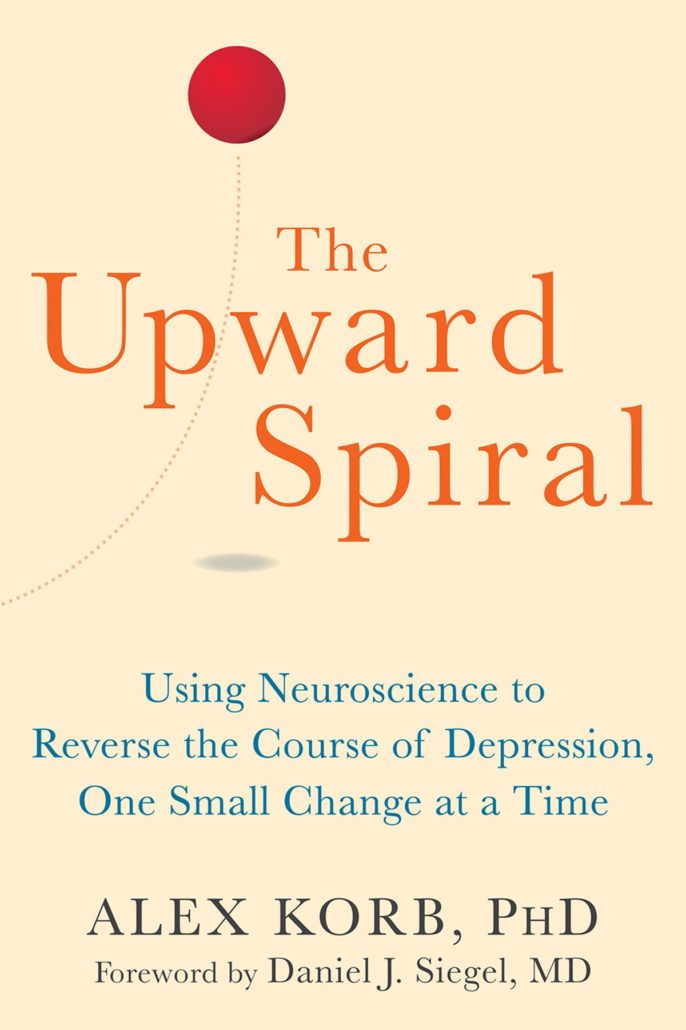
Many people discover that certain facets of life, such as wealth, love, and family, don’t fully satisfy them. Even while it’s clear that not everyone may benefit from it, this book was created especially for those whose happiness may depend on other factors.
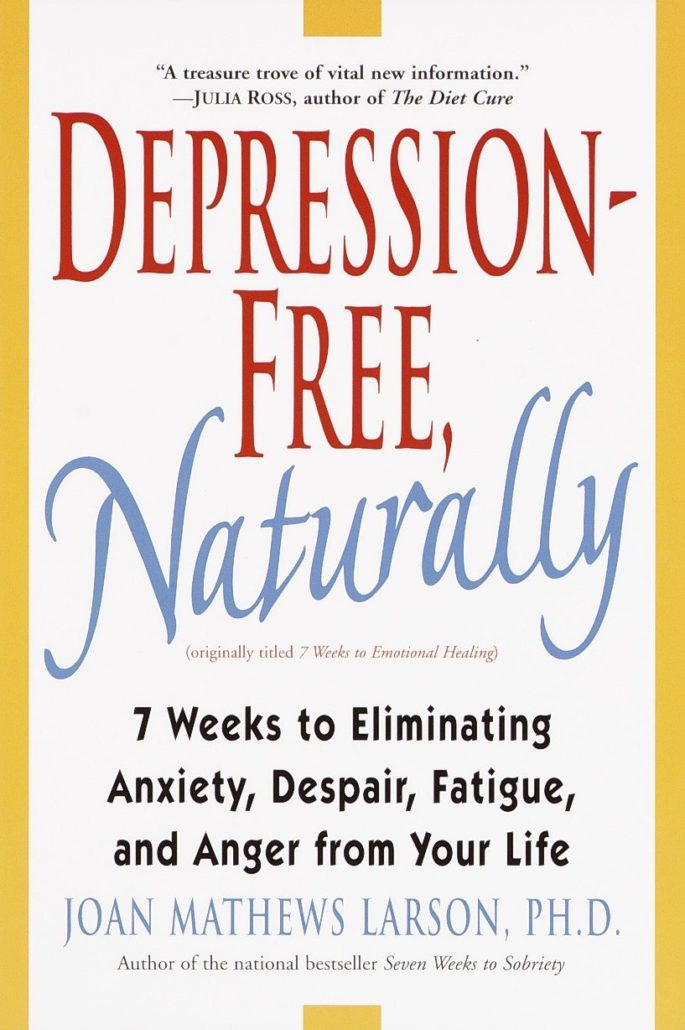
8. Depression-Free, Naturally: 7 Weeks to Eliminating Anxiety, Despair, Fatigue, and Anger from Your Life
You are what you eat, it has been stated. Depression and anxiety, according to nutritionist Joan Mathews Larson, Ph.D., are caused by imbalances and inadequacies. It has been discovered that some vitamins, herbs, and food items, including vitamin D, the ketogenic diet, and particular teas, can assist people with depression.
She provides advice for emotional recovery as well as recommendations for foods, vitamins, and minerals to promote health and ward off depression in “Depression-Free, Naturally.”
The book includes a self-screening tool for specific behavioral symptoms and a step-by-step plan to help you naturally repair your mind and body and live a healthy life.
9. The Noonday Demon: An Atlas of Depression
A universal mood illness like depression does not exist. “The Noonday Demon” tries to explain how it can have varied effects on different people.
From a variety of views, including personal, scientific, and cultural, author Andrew Solomon examines depression. His narrative covers both his own struggles and experiences as well as those of those he interviewed, including those who have experienced depression as well as physicians, decision-makers, and drug developers. Additionally, it covers the ethical and biological issues raised by the condition.
Discover the numerous reasons, including those provided by those who are experiencing it, why depression and its remedies are so complicated.
10. Feeling Good: The New Mood Therapy
Depression can be fueled by certain unfavorable thought patterns like guilt, pessimism, and low self-esteem.
In “Feeling Good,” psychiatrist Dr. David Burns describes methods for identifying and resolving these patterns in order to aid in breaking free from them.
The book aids in guiding you toward ideas that help with addiction, erratic moods, guilt, aggression, and other unfavorable emotions.
The most recent edition of this book also provides greater details on depression treatment alternatives as well as a guide to antidepressants.
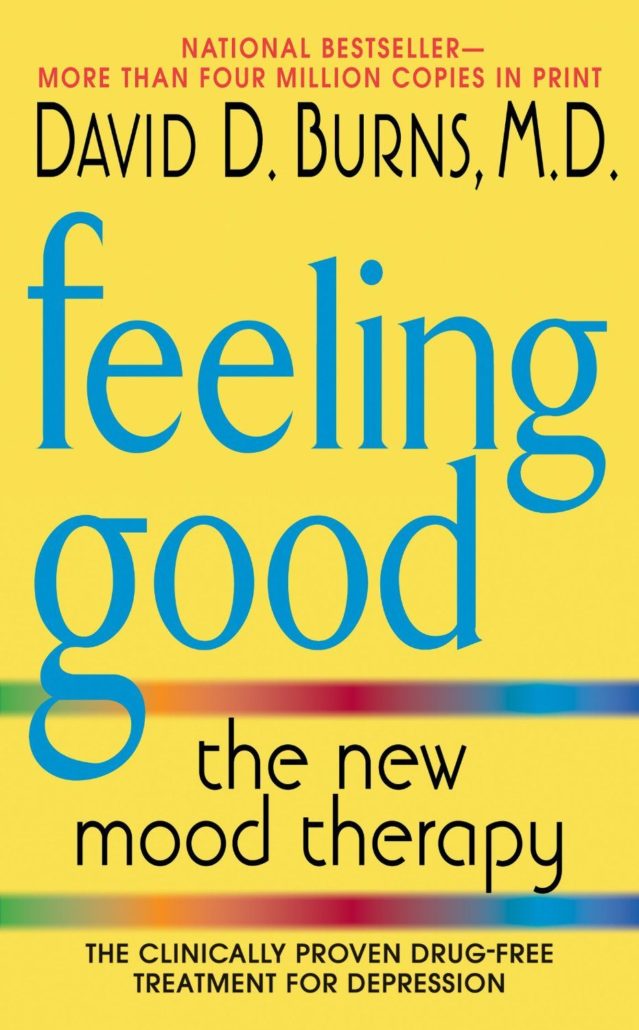
First-class Facilities & Amenities
World-class High-Quality Mental Health Services & Behavioral Health Substance Abuse Treatment
Rehab Centers TourRenowned Mental Health Centers. Serene Private Facilities. Inpatient Rehab Programs Vary.
Mental Health Helpline (855) 940-6125Proven recovery success experience, backed by a Team w/ History of:
15+
Years of Unified Experience
100s
5-Star Reviews Across Our Centers
10K
Recovery Successes
- Comprehensive Dual-Diagnosis Treatment
- Complimentary Family & Alumni Programs
- Coaching, Recovery & Development Events
- Comfortable Onsite Medical Detox Center
Best Self Help Books for Anxiety and Depression
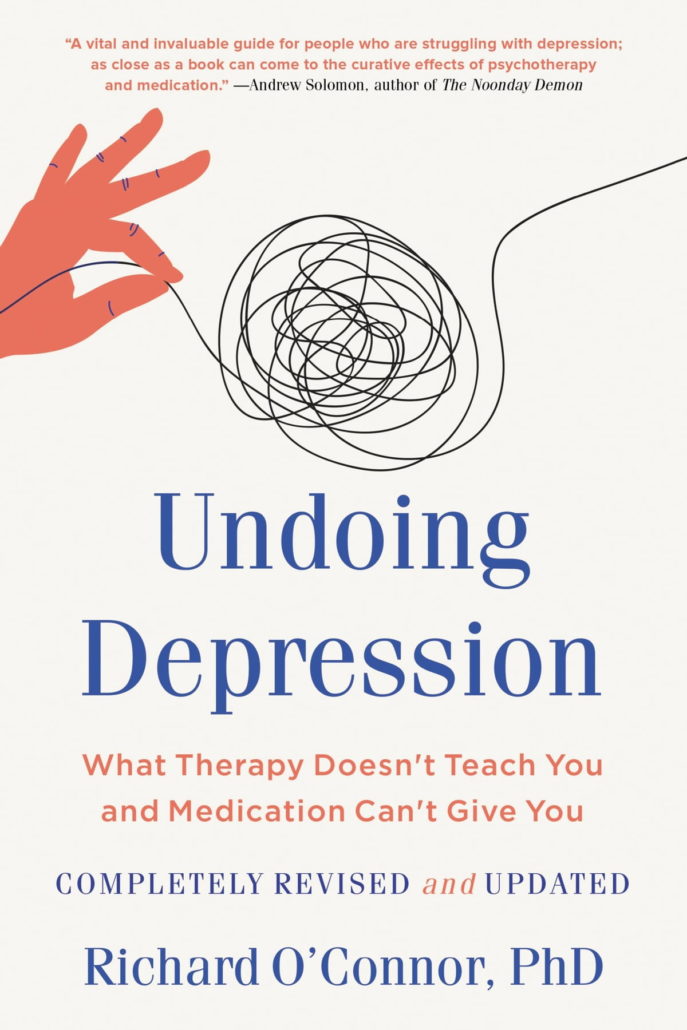
11. Undoing Depression: What Therapy Doesn’t Teach You and Medication Can’t Give You
In order to combat depression, “Undoing Depression” adopts a practical strategy. Psychotherapist Richard O’Connor, Ph.D., concentrates on the components of this illness that are under our control: our behaviors.
The book provides strategies for changing depressive thought patterns and behaviors with more positive ones.
12. Full Catastrophe Living
It’s simple to ignore how much stress we experience and the significant impact it can have on our emotions and general well-being in our fast-paced culture.
A mindfulness practice called “Full Catastrophe Living” teaches you how to be present and reduce stress. The book blends mind-body techniques, such as yoga and meditation, to help you lower stress and enhance your general well-being.
13. Furiously Happy: A Funny Book About Horrible Things
The inspiration for the book “Furiously Happy” came from author Jenny Lawson’s years of personal struggle with depression and other illnesses.
Lawson shares with her readers how she overcame her severe depression and found hope amid the dark. “I’ve often considered that persons with severe depression have formed such a capacity for experiencing tremendous emotion that they could be able to experience extreme joy in a way that ‘regular people’ likewise might never understand,” she says. And that is the central theme of “Furiously Happy.”
The book emphasizes mental illness and despair in addition to Jenny’s focus on the joy she has discovered.
14. Spark: The Revolutionary New Science of Exercise and the Brain
Fitness and heart disease prevention are the only two benefits of exercise. In fact, it is a potent ally in the fight against sadness and anxiety.
In order to understand how and why aerobic exercise is successful at easing the symptoms of a number of mental illnesses, “Spark” examines the mind-body relationship.
Along with eradicating depression, the book aims to improve readers’ intelligence, memory, mood, and ability to handle stress.
15. Change Your Brain, Change Your Life
Contrary to popular belief, an aging dog can learn new tricks. Did you realize that this also applies to brain retraining? We would all benefit enormously from letting go of the unhealthy mental patterns that many of us struggle with. The good news is that we have the ability to alter our cognitive processes. All it takes is effort.
Psychiatrist Dr. Daniel Amen offers “brain prescriptions” in his book “Change Your Brain” that can help you retrain your brain using scientific facts. He provides advice on how to stop automatic negative thoughts (ANTs), which damage our relationships, undermine our self-worth, and make decisions difficult.
He offers advice on many different mental health issues, such as rage, anxiety, and depression.
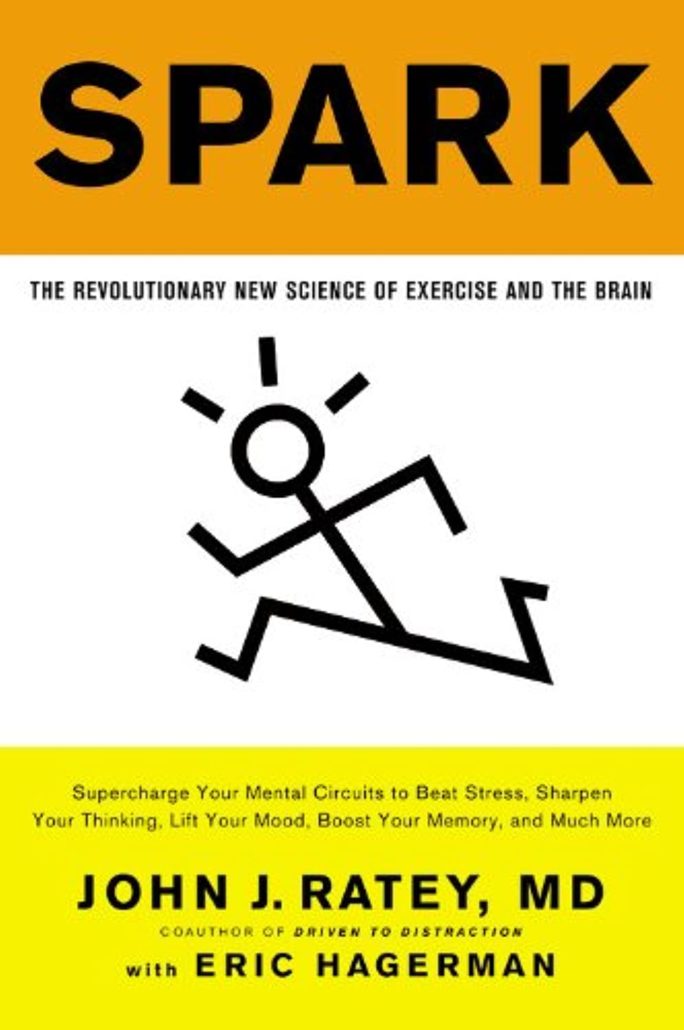
World-class, Accredited, 5-Star Reviewed, Effective Mental Health Dual Diagnosis Programs. Complete Integrated Inpatient Rehab with Free Post Discharge Therapy Planning.
CALL (855) 940-6125End the Emotional Pain Rollercoaster. Gain Stability & Happiness Through Recovery Treatment. Start Mental Health Counseling Today. Get Free No-obligation Guidance by Behaviroal Health Specialists Who Understand Mental Health Recovery.
We Level Up Dual Diagnosis Treatment
The exact definition of dual diagnosis (also referred to as co-occurring disorders) can differ between institutions. However, it is generally described as the specific treatment of someone who has been diagnosed with a substance use disorder and a mental health disorder at the same time.
Treating dual-diagnosis clients is a critical aspect of our inpatient treatment experience because co-occurring disorders are strongly correlated with instances of substance abuse. Creating a treatment plan that addresses the physical aspects of withdrawal, the psychological connection with drug use, and managing underlying mental health disorders is part of setting clients up for success.
A thorough mental health analysis identifies possibilities for treatment. Meeting with mental health counselors and medical care providers means access to behavioral therapy and medication treatment.
At our dual diagnosis treatment center, We Level Up can implement the highest quality of care. We recognize the fragile complexities of how mental and substance abuse disorders can influence others and sometimes result in a vicious cycle of addiction. That’s why we offer specialized treatment in dual-diagnosis cases to provide the most excellent chance of true healing and long-lasting recovery.
It can be challenging to accept that you may be living with a mental illness, but once it is properly diagnosed and treated, treating the presenting case of substance abuse can be magnitudes easier. Only a properly trained medical professional can diagnose these underlying conditions. If you believe you are suffering from a disorder alongside addiction, we urge you to seek a qualified treatment center to begin your journey to recovery. Call We Level Up today.
Experience Transformative Recovery at the We Level Up Treatment Center.
See our authentic success stories. Get inspired. Get the help you deserve.



Start a New Life
Begin with a free call to a behavioral health treatment advisor. Learn more about our dual-diagnosis programs. The We Level Up treatment center network delivers recovery programs that vary by each treatment facility. Call to learn more.
- Personalized Care
- Caring Accountable Staff
- World-class Amenities
- Licensed & Accredited
- Renowned w/ 5-Star Reviews
We’ll Call You
Search We Level Up FL Anxiety and Depression Resources
Sources
[1] National Institute of Mental Health – ‘Depression’ (www.nimh.nih.gov)
[2] U.S. Food and Drug Administration (FDA) (www.fda.gov/)
[3] Depression Treatment » Drug Alcohol Addiction Rehab
[5] NIMH – https://www.nimh.nih.gov/health/publications/social-anxiety-disorder-more-than-just-shyness
[6] Selective Serotonin Reuptake Inhibitors – National Center for Biotechnology Information, U.S. National Library of Medicine
[7] ‘Anxiety Disorders’ – National Institute Of Mental Health (Nimh.nih.gov)
[8] Psychopharmacology of anxiety disorders – National Center for Biotechnology Information, U.S. National Library of Medicine
[9] Products – Data Briefs – Number 379 – September 2020 (cdc.gov) Depression – National Institute of Mental Health
[10] Coping with Stress – Centers for Disease Control and Prevention